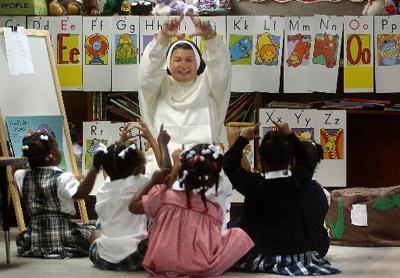
A Catholic Elementary School
Seeking truth and charity in a faith filled environment.

(Photo from the Times Picayune)
For information, please contact the school office at 504-525-3860
or send an e-mail to [email protected].
To connect to the St. Louis Cathedral website, click the link below:
www.stlouiscathedral.org
Cathedral Academy
820 Dauphine Street
New Orleans, LA 70116
Phone: 504-525-3860
Fax: 504-525-3193
E-mail: [email protected]